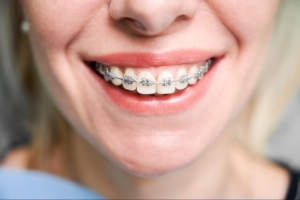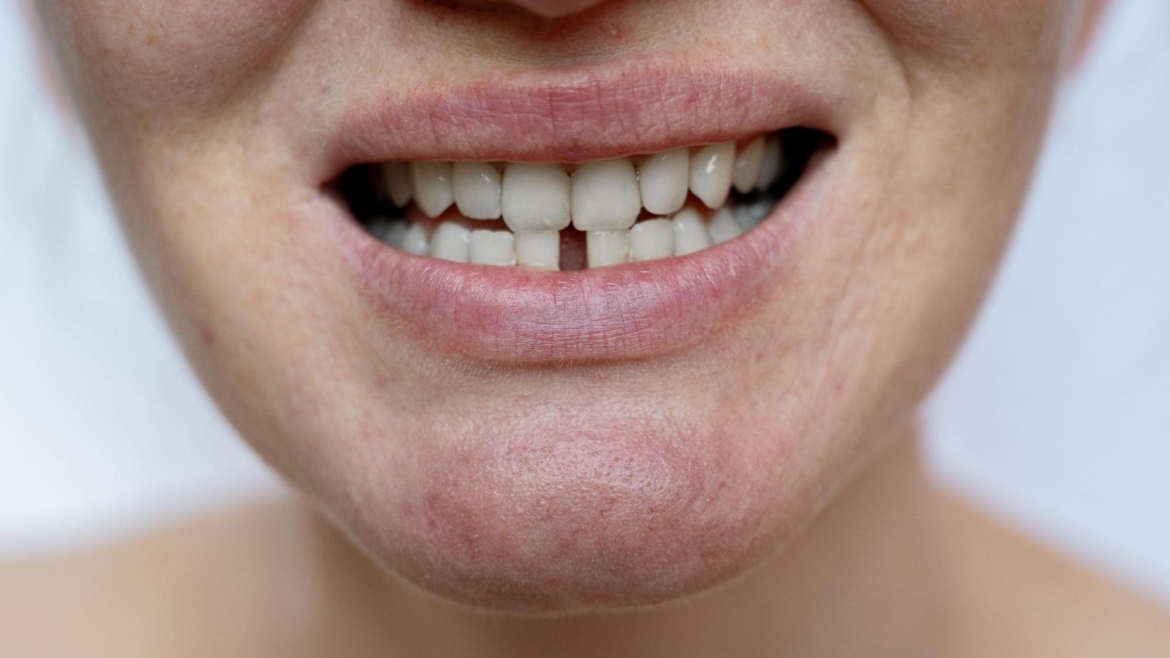
Minor gaps between teeth can be charming—but for many, they’re a source of self-consciousness. Whether it’s a slight space between the front teeth or several small gaps along your smile line, there are now fast, aesthetic solutions available right here in Birmingham.
But when choosing between composite bonding and braces, it can be hard to know what’s right for you.
This blog breaks down everything you need to know about composite bonding vs braces to help you make the best decision for your smile goals, lifestyle and budget.
What Are Minor Gaps and Why Do They Occur?
Minor gaps (also known as diastemas) are small spaces that can appear between any two teeth, but are most commonly found between the upper front teeth.
Common causes include:
-
- Genetics (jaw size vs tooth size mismatch)
- Tooth loss or movement
- Habits such as thumb-sucking or tongue-thrusting
- Gum disease or bone loss
While not usually a health issue, gaps can affect:
-
- Confidence in smiling
- Tooth alignment over time
- Speech in some cases
Composite Bonding for Minor Gaps
Composite bonding involves adding a tooth-coloured resin to the sides of the teeth to close the gap instantly.
 Benefits:
Benefits:
-
- Same-day results
- No drilling or injections
- Cost-effective
- Painless and non-invasive
- Blends perfectly with your natural teeth
Perfect for closing 1–3 mm gaps between front or side teeth.
How long does it take?
Usually 45–90 minutes per gap and it’s completed in a single visit.
Learn More About Composite Bonding
Braces for Minor Gaps
Braces work by gradually moving the teeth into a new position using pressure from wires or clear aligners. They are a more orthodontic solution to spacing issues.
There are two main types:
-
- Traditional metal braces
- Clear aligners (e.g. Invisalign®)
 Benefits:
Benefits:
-
- Corrects gaps and overall bite
- Treats more complex alignment issues
- Results are stable and long-term
Braces are better for patients with multiple spacing and bite issues, not just cosmetic gaps.
How long does it take?
Typically 6 to 12 months, depending on severity.
Composite Bonding vs Braces: Key Differences
| Feature | Composite Bonding | Braces |
| Treatment Time | Same day | 6–12 months |
| Invasiveness | Non-invasive | Involves tooth movement |
| Cost | £180–£1,000 | £2,000+ |
| Ideal For | Small gaps, cosmetic fixes | Larger gaps, bite corrections |
| Maintenance | Occasional touch-ups | Retainers post-treatment |
| Discomfort | Painless | Mild pressure and adjustments |
If your goal is simply to close small gaps for aesthetic reasons, composite bonding is usually the faster and more affordable route.
What Do Dentists Recommend?
At Manor House Dental, we assess every patient individually. During your consultation, we will evaluate:
- Size and location of the gaps
- Your bite and jaw alignment
- Your long-term smile goals
- Budget and time availability
In some cases, we may even combine treatments—starting with minor orthodontics followed by bonding to perfect the shape.
Who Should Choose Composite Bonding?
Composite bonding is ideal if:
-
- Your gaps are 1–3 mm wide
- You want a quick fix
- You have healthy teeth and gums
- You’re seeking a cosmetic solution
Who Should Consider Braces or Aligners?
Braces (especially Invisalign®) may be better if:
-
- You have multiple gaps
- Your teeth are rotated or misaligned
- You want comprehensive bite correction
Are There Any Risks or Downsides?

Composite Bonding:
-
- May stain over time
- Not as strong as enamel (avoid biting hard items)
- May need re-polishing after 3–5 years
Braces:
-
- Longer commitment
- Requires compliance (especially with aligners)
- Potential discomfort from pressure
Our Recommendation for Closing Gaps at Manor House Dental
We typically advise:
-
- Bonding for quick cosmetic fixes (e.g. one or two small gaps)
- Braces or Invisalign if there’s bite involvement, crowding or multiple gaps
During your consultation, we take digital scans, review your smile from every angle and provide a bespoke treatment plan—with no pressure to proceed.
FAQs
Is bonding cheaper than braces?
Yes. Bonding usually costs hundreds compared to thousands for braces.
Will my bonded teeth look fake?
No. The resin is colour-matched to your natural enamel for a seamless appearance.
Do I need to wear retainers after bonding?
No. Retainers are only necessary after orthodontic treatment.
Can I eat and drink normally after bonding?
Yes—though we advise limiting coffee, tea, red wine and avoiding biting hard objects.
Composite Bonding for Gaps: Before and After

The Right Choice for Your Smile
There’s no one-size-fits-all solution. But for many adults and teens with minor gaps, composite bonding offers a fast, affordable and confidence-boosting result—without the time or cost commitment of braces.
Let Manor House Dental in Birmingham help you make the right decision for your smile. We are here to guide you with expert care, transparent pricing and beautiful results.


